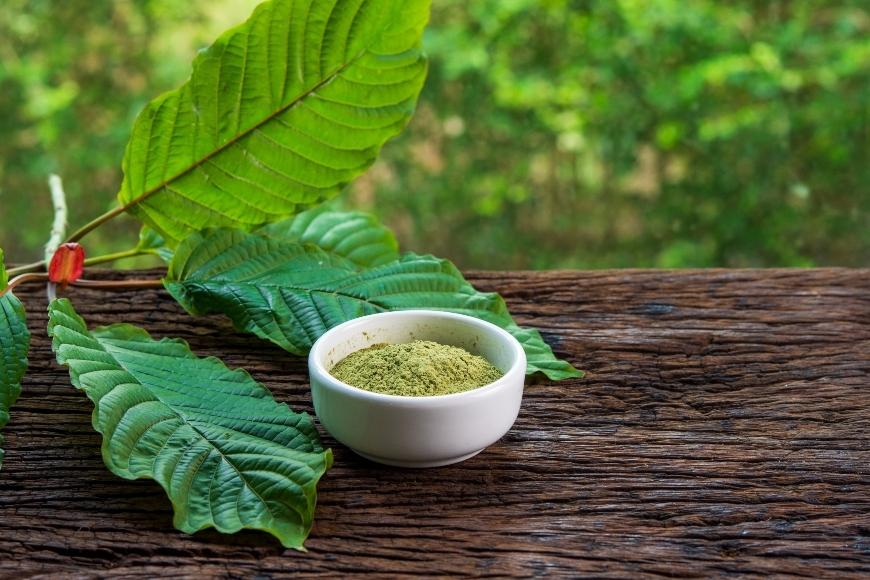The Most Common Effects of Kratom
Explore "The Most Common Effects of Kratom," from dosage and side effects to its therapeutic benefits, interactions with other drugs, and associated risks.

Exploring the world of natural remedies, one cannot ignore "The Most Common Effects of Kratom". From the leaves of Mitragyna speciosa Korth, a plant native to Southeast Asia, comes kratom - increasingly sought-after by those searching for alternatives to traditional mood enhancers.
In this blog post, we will delve into how taking kratom in various doses can have different effects - therapeutic and adverse. We'll examine how small doses act as a mood booster while higher doses might lead to side effects or even kratom dependence.
We'll also discuss long-term impacts that regular kratom users may experience such as potential liver damage and withdrawal symptoms. Furthermore, we’ll explore its benefits touted by organizations like the American Kratom Association and understand its interactions with other drugs.
Finally, it's essential to be aware of risks associated with using any substance including kratom which is dose dependent. Join us on this journey through "The Most Common Effects of Kratom" and equip yourself with knowledge before experimenting with this natural remedy.
Table of Contents:
- Understanding Kratom Effects
- Kratom Dosage
- Side Effects of Kratom
- The Long-Term Effects of Kratom
- The Benefits of Kratom
- Interactions with Other Drugs
- Risks of Kratom Use: What You Need to Know
- Conclusion
Understanding Kratom Effects
If you're a fan of natural remedies, then you may have come across kratom - a tropical tree from Southeast Asia with long-standing use in traditional medicine. This tropical tree from Southeast Asia has been used for centuries in traditional medicine due to its unique properties. Before trying kratom, it is essential to comprehend the effects it can have.

Kratom contains two primary active compounds: mitragynine and 7-hydroxymitragynine. These alkaloids interact with opioid receptors in the brain, producing sedation, pleasure, and decreased pain when consumed in large amounts. In smaller doses, some users report increased energy and sociability instead.
However, these effects come with potential downsides. Regular use of kratom can lead to reliance, and suddenly stopping its intake may result in withdrawal symptoms such as muscle soreness, difficulty sleeping, and irritability.
The intensity of these withdrawal symptoms can vary based on the length and amount of kratom use. Therefore, understanding proper dosing is crucial if you decide to consume this plant-based product.
In addition to dependency risks, there are also short-term side effects that new users should be aware of, such as nausea, vomiting, constipation, dry mouth, and dizziness.
While there are potential advantages to using kratom, users should prioritize safety above all else. Responsible users should consider their personal drug consumption habits, preferences, and overall lifestyle choices.
Kratom Dosage
When it comes to taking kratom, getting the right dose is key. Too much or too little can lead to unwanted effects.
The appropriate amount of kratom depends on factors like age, health, and tolerance. It's important to note that natural products aren't always safe and dosages can be significant.
A report by NIDA suggests that commercial forms of kratom often contain other substances which may contribute to its overall effect. A small amount (1-5g) of the dried plant material may lead to mild stimulation, while larger amounts (5-15g) could possibly bring about pain relief and effects akin to opioids.
Ingesting 15 grams or more typically leads to sedation and euphoria but also increases risk for uncomfortable side-effects like nausea or vomiting. Extremely high doses (>15g) might even cause serious harm including seizures or respiratory depression.
Finding Your Optimal Dose
- Start Small: If you're new to kratom, begin with a small dose (1-2 grams). Wait at least an hour before deciding if you need more.
- Moderate Use: A moderate dosage usually falls between 3-6 grams per use. This range is often used for pain relief or treating opioid withdrawal symptoms.
- Sedative Effects: Higher doses ranging from 7-10 grams provide sedative effects which some users find helpful for sleep disorders or severe chronic pain conditions.
Everyone responds differently to this range, so it's important to experiment cautiously with dosage until desired results are achieved. Research suggests starting off slowly then gradually increasing your intake until you achieve desired results - this method helps avoid potential adverse reactions while maximizing benefits derived from consumption.
Always confer with a medical expert prior to beginning any new supplement regimen, particularly if you have existing health issues or are taking prescription drugs since there could be potential interactions that lead to undesired side-effects.
It's essential to be mindful of how much kratom we consume because our bodies' response will dictate whether the experience becomes a beneficial or harmful one.
Side Effects of Kratom
Kratom, a tropical tree native to Southeast Asia, has gained popularity due to its psychoactive properties. However, kratom use can be accompanied by adverse effects due to its interaction with opioid receptors in the brain.
The National Institute on Drug Abuse (NIDA) notes that kratom interacts with opioid receptors in the brain, producing pleasure and sedation but also unpleasant or harmful side effects.
Nausea and Vomiting
Nausea and vomiting are common side effects reported by kratom users, usually being more severe with higher doses. The severity of these symptoms typically depends on the dosage taken - higher doses are more likely to cause such reactions.
Dry Mouth and Increased Thirst
Kratom use can lead to dry mouth and increased thirst. These symptoms might seem minor but could become bothersome if experienced regularly or for extended periods.
Sweating and Itching
Sweating excessively or experiencing an unusual itchiness are other potential side effects of using kratom. Again, these tend to be dose-dependent; higher amounts usually increase the likelihood of experiencing them.
Mental Side Effects
Some people have reported mental health issues related to kratom use, including anxiety or agitation with higher doses and confusion or delusion in certain cases. Users might experience anxiety or agitation after taking high doses of this substance while others report feelings of confusion or delusion under similar circumstances.
Potential Severe Side Effects
Apart from these mild-to-moderate reactions, there's a risk for severe consequences too when consuming large quantities over prolonged periods. As per NIDA's reports, seizures, liver damage, and hallucinations have all been linked back directly towards heavy usage patterns among individuals who consume this plant-based product consistently without proper supervision.
It's essential to understand the possible repercussions before trying kratom for recreational purposes. Always remember moderation is key to avoiding most adverse outcomes mentioned above.
The Long-Term Effects of Kratom
While some users report positive effects such as pain relief and mood enhancement, it's crucial to understand the potential long-term consequences of kratom use.
The Risk of Tolerance
Regular kratom use can lead to tolerance, where larger doses are required for the same effect. Prolonged use of kratom can lead to a reliance that may be hard to shake off without expert aid.
The Dangers of Dependency
Studies show that prolonged use of kratom can lead to physical dependence similar to opioids. Symptoms may include muscle pain, insomnia, irritability, hostility, and aggression. These withdrawal symptoms make quitting difficult without professional help.
Potential Health Risks
Chronic consumption of kratom could lead to serious health issues, including liver harm and seizures, as per research. Furthermore, there are concerns about mental health problems like anxiety or depression, which might be exacerbated with consistent intake over time.
Cognitive Impairment
Heavy kratom consumption could potentially affect memory function if used excessively over extended periods, according to some researchers.
Social Consequences
Continuous misuse of kratom can lead to damaged relationships due to financial strain from purchasing more product to sustain high levels of consumption or neglecting responsibilities at work or home. It's important to remember these factors before deciding to start using regularly since they have a lasting impact on the user's life beyond the immediate physiological changes caused by ingestion itself.
It's vital to be aware of the potential repercussions that could arise from prolonged kratom use before opting for regular consumption. While it may provide some benefits, the risks of tolerance, dependency, health problems, cognitive impairment, and social consequences are significant and should not be taken lightly.
The Benefits of Kratom
Kratom, scientifically known as Mitragyna speciosa Korth, has been used for centuries in traditional medicine due to its therapeutic effects. It's gaining popularity among natural remedies enthusiasts and regular kratom users for its mood-enhancing properties and potential pain relief benefits.
Pain Relief
The kratom plant's leaves are known to contain two key compounds, mitragynine and 7-hydroxymitragynine, which may be the active ingredients responsible for its purported effects. These active ingredients are believed to interact with opioid receptors in the brain, providing a dose-dependent effect. At lower dosages, kratom can have a stimulating effect, potentially making individuals more energetic or outgoing. However, at higher doses, it may have sedative effects similar to opioids.
A study published by the National Institutes of Health found that some individuals use kratom as a natural alternative for managing chronic pain conditions such as arthritis or fibromyalgia. The American Kratom Association also supports this claim by stating that many people find relief from discomfort when taking small doses of this herbal supplement.
Mood Enhancement
Besides being recognized as an effective pain reliever, many users report experiencing improved moods after consuming kratom leaves - hence why it is often referred to as a mood booster or enhancer. This could be attributed to the fact that certain alkaloids present in these leaves work on enhancing one's mood by stimulating dopamine production.
Withdrawal Symptoms
Kratom has been known to help alleviate withdrawal symptoms from opioid addiction. According to the National Institute on Drug Abuse (NIDA), there's evidence suggesting that some substances found in kratom might have similar effects like opioids but cause less dependency making them potentially useful during detoxification stages.
In summary, while further research needs exploring into all potential benefits and adverse side effects related to long-term usage of this substance; current findings suggest possible advantages including pain management capabilities along with acting like a natural mood enhancer among others when consumed responsibly under controlled dosages.

Interactions with Other Drugs
Kratom, like many other substances, can interact with other drugs. These interactions can alter the effects of kratom and may even lead to dangerous side effects. It's crucial to understand these potential interactions before combining kratom with any other substance.
One significant interaction is between kratom and opioids. Kratom can bolster the effects of opioid medications, for instance morphine or hydrocodone, and this blend may bring about an overdose which could be deadly. This combination increases the risk of overdose and could potentially be fatal.
Similarly, combining kratom with central nervous system depressants (like alcohol or sedatives) can also increase risks due to enhanced sedation and slowed breathing. The Drug Enforcement Administration warns against this combination due to its potential dangers.
Potential Interactions:
- Opioids: Increased risk of overdose
- CNS Depressants: Enhanced sedation and slowed breathing
- Caffeine: Heightened stimulant effect that might lead to anxiety or rapid heartbeat
- Mood Stabilizers/Antidepressants: Possible alteration in mood regulation leading to increased depression or mania symptoms
Besides these known interactions, there are several reports about individuals experiencing adverse reactions when mixing kratom with caffeine or certain psychiatric medications like mood stabilizers or antidepressants. However, more research is needed in this area for a definitive understanding.
In general, if you're considering using kratom alongside another drug, whether it's prescription medication, over-the-counter medicine, or recreational drugs, it's essential to consult a healthcare professional who understands your medical history well enough to provide accurate advice on possible drug-drug interactions involving kratom.
Note on Self-Medication:
Avoid self-administration of substances such as kratom, and always consult a healthcare professional for guidance on potential interactions. Always seek professional guidance from healthcare providers knowledgeable about herbal supplements' safety profiles, including their interaction potentials.
Risks of Kratom Use: What You Need to Know
Kratom is a popular substance that is often used for its potential benefits. It is essential to be conscious of the potential dangers connected with kratom usage. One of the primary worries is habituation, which may cause kratom withdrawal indications when attempting to stop.
Reports of users experiencing hallucinations, delusions and even seizures or liver damage have been linked to kratom use.
Potential Overdose Risks
Another risk factor that needs consideration is overdose potential. While deaths are rare compared to other drugs like opioids, they do occur and are usually linked with using too much kratom or combining it with other substances.
The CDC reported an increase in calls related to kratom exposure from 2011-2017 which indicates a growing trend towards misuse and possible overdoses.
Kratom Interactions With Other Substances
The interaction between kratom and other substances also poses significant risks. When combined with alcohol or prescription medications such as benzodiazepines or opioids, this could potentially lead to dangerous side effects like respiratory depression.
Risk Mitigation Strategies
- Avoid mixing Kratom with any kind of depressants: These include alcohol but also sedative medications prescribed by your doctor.
- Start low: Always start off taking lower doses until you understand how your body reacts.
- Educate yourself: Stay informed about new research findings regarding Kratom's safety profile.
It's important to be aware of the risks associated with kratom use and take steps to mitigate them. By following these risk mitigation strategies, you can help ensure that you use kratom safely and responsibly.
Conclusion
The Most Common Effects of Kratom: The impact of kratom appears to vary depending on dosage and individual factors, with some experiencing pain relief and improved mood, while others may feel nausea and dizziness. It's crucial to understand the risks associated with kratom use, including potential interactions with other drugs and the possibility of liver damage and addiction from long-term use. To use kratom responsibly, start with a low dose and monitor your body's response. Always consult credible sources for information on kratom use.


































































































































